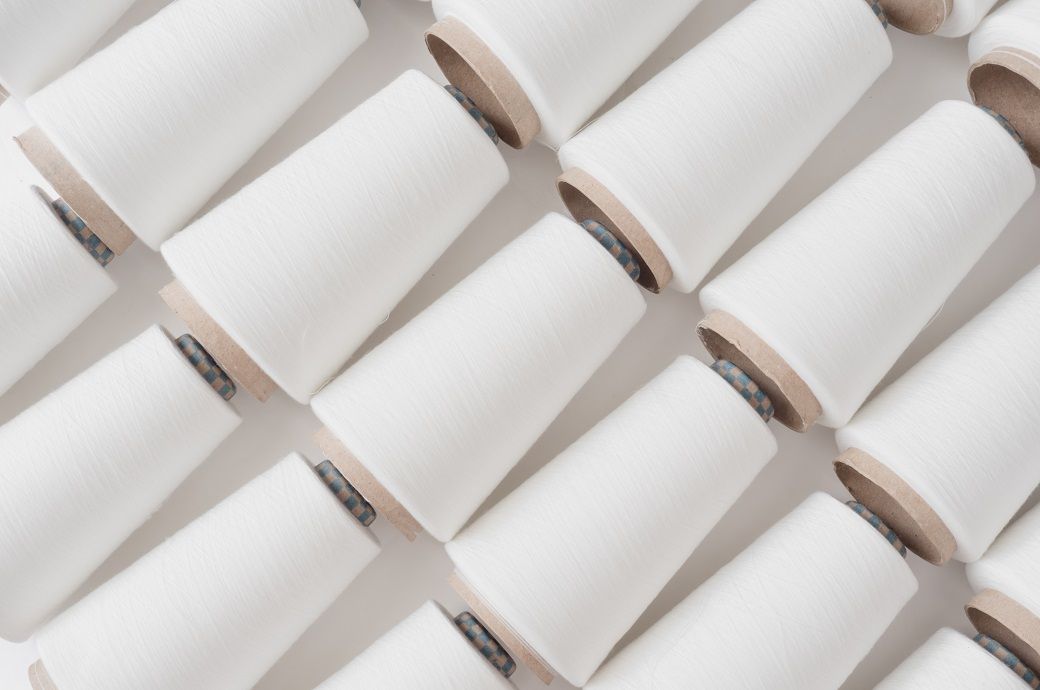
However, supply shortages and a rise in PET bottle prices pushed up prices of specialised polyester yarn and recycled polyester staple fibre (PSF) yarn. Domestic manufacturers reduced prices of virgin PSF by ₹1 per kg following a recent drop in crude oil prices, a key raw material for man-made textile fibres.
Polyester-cotton yarn prices eased by ₹2 per kg in the past week. However, 20 count recycled PSF yarn gained ₹2 per kg, as demand is expected to increase in the coming weeks due to a shortage of PET bottles, the key raw material for this product. A trader from the Ludhiana market told Fibre2Fashion, “The market saw poor demand for PC yarn in the local market. Stockists and mills had to reduce their selling prices of PC yarn. However, recycled PSF yarn prices gained by ₹2 per kg due to the raw material shortage, which may further increase its prices.”
In Ludhiana, 30 count PC combed yarn (48/52) traded at ₹205-215 (approximately $2.40-2.51) per kg (GST inclusive); 30 count PC carded yarn (65/35) at ₹192-202 (approximately $2.25-2.36) per kg; 20 count recycled polyester yarn at ₹114-120 (approximately $1.33-1.40) per kg; 30 count polyester spun at ₹155-163 (approximately $1.81-1.91) per kg (GST inclusive); recycled polyester fibre (PET bottle fibre) at ₹80-82 (approximately $0.94-0.96) per kg; and virgin polyester fibre at ₹100 (approximately $1.17) per kg.
Surat’s polyester yarn market witnessed limited supply of specialised yarns like fully drawn yarn, which led to gains of ₹1-2 per kg. However, polyester spun yarn prices remained unchanged. According to market sources, specialised polyester yarn increased in price due to a demand-supply mismatch.
In Surat, 30 count polyester spun yarn was traded at ₹144-145 (approximately $1.68-1.70) per kg (GST extra); 40 count poly spun yarn at ₹157-158 (approximately $1.84-1.85) per kg; 50/48 fully drawn yarn (FDY) at ₹115-116 (approximately $1.35-1.36) per kg; 75/72 FDY at ₹105-106 (approximately $1.23-1.24) per kg; and 75 bright yarn at ₹107 (approximately $1.25) per kg.
Viscose compact yarn prices also dipped by ₹2-3 per kg in Mumbai and Surat as demand remained weak, and import costs declined due to a rise in the Indian currency against the US dollar. Traders said that the recent recovery of the Indian rupee against the US dollar has reduced the import cost of vortex viscose yarn. Retail garment demand also slowed after Eid. While the wedding season may bring increased demand, large stock levels could absorb this additional demand in the textile value chain.
In Mumbai, imported 30 count viscose vortex yarn was priced at ₹203-207 (approximately $2.37-2.42) per kg; and local 30 count ring-spun viscose yarn at ₹204-209 (approximately $2.39-2.44) per kg.
In Surat, 30 count viscose compact yarn (local) was sold at ₹220-225 (approximately $2.57-2.63) per kg (GST extra) and 30 count viscose vortex yarn at ₹204-205 (approximately $2.39-2.40) per kg.
In north India, cotton prices jumped by ₹50 per maund of 37.2 kg since last Monday. Prices remained steady on Tuesday but rallied on Wednesday as stronger ICE cotton and continued buying by spinning mills supported local prices. Global cotton prices rose on Tuesday following reports of lower cotton acreage output in the US. Traders said spinning mills are increasing purchases in the local market due to reduced availability. Heavy procurement of over 100 lakh bales by the Cotton Corporation of India (CCI) has absorbed a large share of the total Indian cotton crop. Spinners find open market prices more affordable compared to the auction-based prices of CCI.
Cotton arrivals in north India totalled 5,500 bales of 170 kg, comprising 200 bales in Punjab, 2,500 bales in Haryana, 2,000 bales in upper Rajasthan, and 800 bales in lower Rajasthan. Cotton prices in Punjab ranged from ₹5,600 to ₹5,610 (approximately $65.51–65.62) per maund of 37.2 kg, while in Haryana, prices ranged from ₹5,500 to ₹5,540 (approximately $64.34–64.80). In upper Rajasthan, cotton was priced between ₹5,610 and ₹5,630 (approximately $65.10–65.86) per maund. In lower Rajasthan, it was priced at ₹53,300 to ₹54,400 (approximately $623.47–636.34) per candy of 356 kg. Seed cotton was priced at ₹7,300–7,500 (approximately $85.39–87.73) per quintal of 100 kg.
ALCHEMPro News Desk (KUL)
Receive daily prices and market insights straight to your inbox. Subscribe to AlchemPro Weekly!